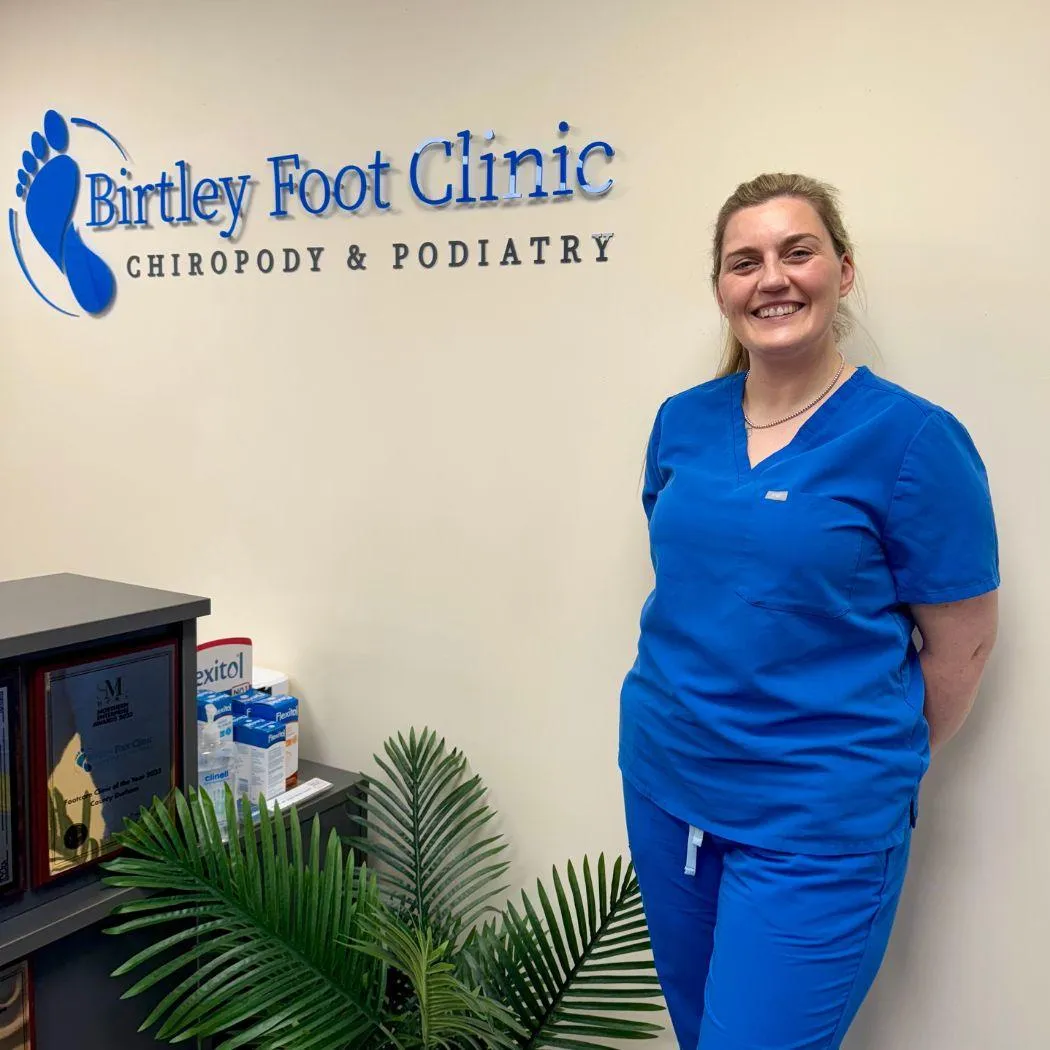
Suffering from Bunions? How Podiatry Can Offer Relief
If you’ve ever dealt with bunions, you know how uncomfortable and frustrating they can be. These bony bumps that form at the base of your big toe can cause pain, difficulty in walking, and even prevent you from wearing your favourite shoes. While bunions are common, they’re often misunderstood, and many people live with the discomfort for years before seeking professional help.
At Birtley Foot Clinic, we understand how bunions can affect your daily life, and we’re here to help you find the relief you deserve. In this blog, we’ll explain what bunions are, what causes them, and how podiatric care can provide effective treatments to manage and alleviate bunion pain.
What Are Bunions?
A bunion is a deformity of the joint at the base of your big toe. It occurs when the bones in your foot shift out of place, causing the big toe to lean toward the second toe. This misalignment leads to a noticeable bump on the side of your foot, which can become inflamed, painful, and sometimes even swollen.
In addition to the visible bump, bunions can also cause other issues, such as:
Pain when walking or wearing shoes
Difficulty finding comfortable footwear
Swelling and redness around the bunion
Stiffness in the joint
The formation of corns or calluses on the toes
While bunions are often associated with wearing tight or ill-fitting shoes, they can also be influenced by genetic factors, arthritis, or other structural issues in your feet.
What Causes Bunions?
Several factors can contribute to the development of bunions. While tight shoes or high heels are often blamed, bunions are also linked to the natural structure of your feet. Here are a few common causes of bunions:
Genetics
Bunions tend to run in families. If your parents or grandparents had bunions, there’s a higher chance you may develop them too. Structural problems in your feet, such as flat feet or abnormal gait, can also increase the likelihood of bunion formation.Ill-Fitting Shoes
Wearing shoes that are too tight, narrow, or high-heeled can put excessive pressure on your toes and lead to bunions. While tight shoes don’t directly cause bunions, they can exacerbate an existing issue or speed up the development of one.Arthritis
Arthritis, especially inflammatory types like rheumatoid arthritis, can cause joint changes that contribute to bunions. This condition can weaken the joints in your feet, making it easier for bunions to form.Foot Stress
Increased pressure on the feet, whether from excessive standing, walking, or certain physical activities, can lead to the development of bunions over time. This is why people who are on their feet for long periods, like teachers or nurses, often experience bunion pain.
How Podiatry Can Help with Bunion Relief
If you’re suffering from bunions, seeking the help of a podiatrist can make a significant difference. Podiatrists are experts in foot care and can provide a variety of treatments to help alleviate bunion pain and prevent the condition from getting worse. Here are some of the ways podiatry can offer relief for bunions:
1. Conservative Treatments for Bunion Pain
Before considering surgery, many people can find relief through conservative treatments. A podiatrist can recommend several non-invasive options to help reduce pain and discomfort:
Custom Orthotics: Podiatrists can prescribe custom-made shoe inserts that provide extra support and help redistribute pressure away from the bunion. This can help reduce pain and improve your overall foot alignment.
Padding and Taping: Special padding or strapping techniques can help cushion the bunion and reduce pressure from footwear. This can be especially helpful if you experience pain when walking or standing for long periods.
Anti-Inflammatory Medications: Over-the-counter medications, such as ibuprofen, can be recommended to reduce inflammation and alleviate pain caused by bunions.
Foot Exercises: A podiatrist can show you stretching and strengthening exercises that can help improve the flexibility of your feet and reduce pressure on the bunion.
Proper Footwear: One of the simplest and most effective ways to manage bunions is to wear shoes that fit well and provide ample room for your toes. A podiatrist can guide you on the best footwear options for your foot structure.
2. Podiatric Treatments for Severe Bunions
If conservative treatments don’t provide sufficient relief and the bunion continues to cause significant pain or interfere with daily activities, a podiatrist may recommend more advanced treatments, such as:
Bunion Splints: These devices help reposition the big toe and reduce the deformity over time. They’re usually worn at night to help correct the alignment of the joint.
Injections: If the pain becomes more severe, a corticosteroid injection can help reduce inflammation and provide temporary relief.
Surgical Options: In cases where the bunion is significantly affecting your quality of life, surgery may be necessary. A podiatrist can discuss surgical options, such as bunionectomy, where the bone is realigned or removed. Surgery is usually considered a last resort when all other options have been exhausted.
3. Prevention and Long-Term Management
Once your bunion is managed or treated, it’s important to take steps to prevent further issues. Regular podiatric care can help keep your feet healthy and prevent bunions from worsening. Some preventive measures include:
Maintaining a healthy weight: Excess weight can put additional pressure on your feet, which may worsen bunions.
Performing regular foot exercises: These exercises help maintain flexibility and strength in your feet, reducing the risk of bunion formation.
Wearing appropriate footwear: Choose shoes with a wide toe box, low heels, and plenty of cushioning to minimize stress on your feet.
Why Choose Birtley Foot Clinic?
At Birtley Foot Clinic, we understand how bunions can affect your daily life. Our team of experienced podiatrists is committed to helping you find relief through effective treatments tailored to your needs. Whether you’re dealing with mild discomfort or a more severe bunion, we’re here to help you get back on your feet without pain.
Don’t let bunions control your life—schedule an appointment with us today to explore your treatment options and start your journey toward pain-free feet.



